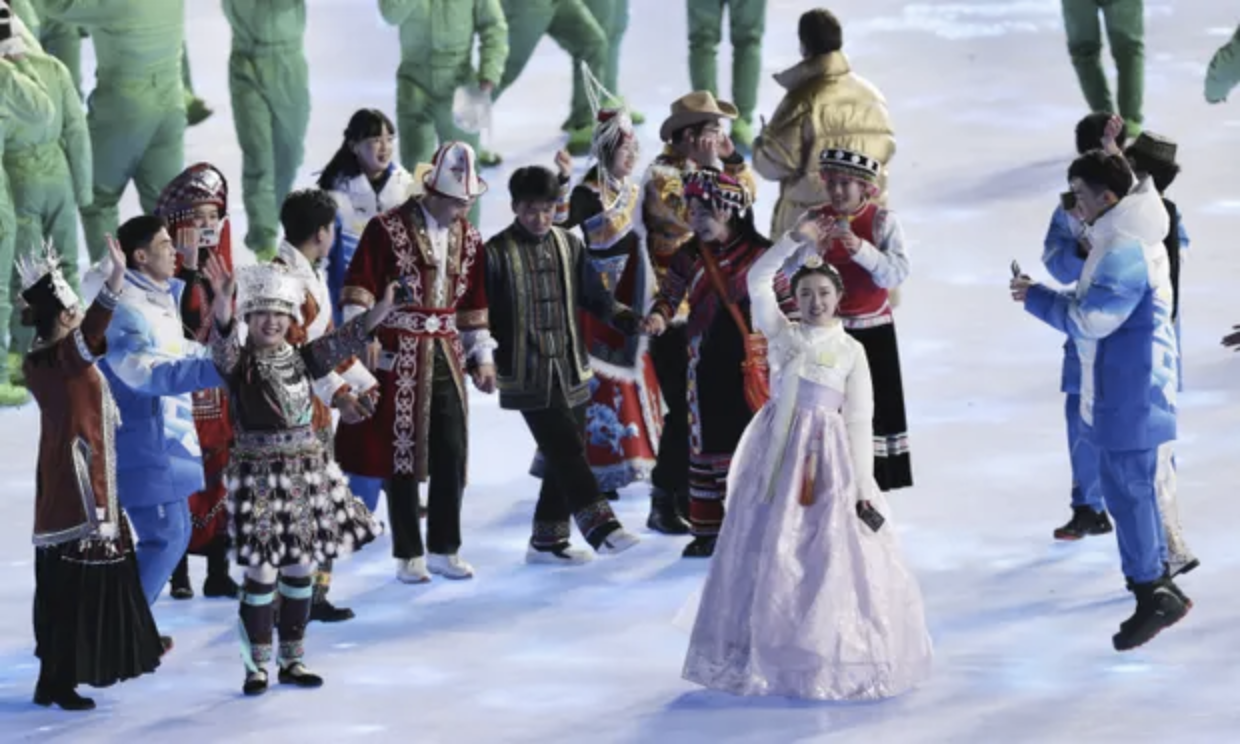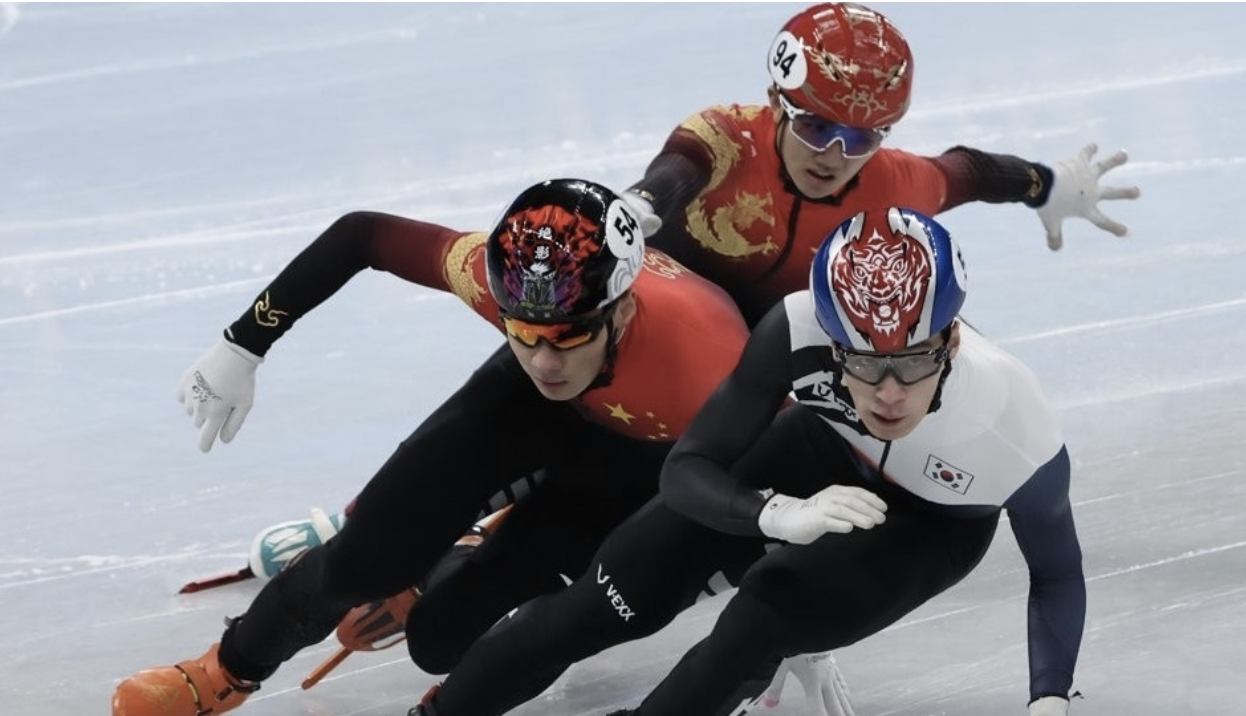Controversy in Beijing Olympics
A performer at the opening ceremony of the 2022 Winter Olympics is shown wearing a traditional Korean hanbok dress. Photo: Lim Hwa-young/Associated Press
A woman dressed in a traditional Korean dress at the opening ceremony of the Beijing winter Olympics received condemnation from South Korea for cultural appropriation. Performers allegedly representing China’s ethnic groups, including the woman wearing the white and light purple hanbok, carried the Chinese national flag at the Beijing Stadium on the opening day.
The Chinese embassy in Seoul released a statement responding to this controversy, noting that hanbok belongs to ethnic Koreans not just residing in Korea. However, presenting the hanbok to the world as part of a minority culture in China has arguably promoted the hanbok as China’s own cultural piece. Korea’s culture Minister Hwang Hee told the South Korean media that referring to people as a “minority” means Korea hasn’t become a sovereign country, which can cause misunderstandings in bilateral relations.
Many South Koreans, including major presidential candidates, have accused China of cultural appropriation, especially with the ongoing public sensitivity on the internet with false claims that China is the origin of major Korean cultural items, like kimchi. Similar instances have continued from the past, within a larger political context.
Men’s 1000m short track speed skating race. Photo: Yonhap News
Meanwhile, China has been in the spotlight of controversy after criticism of unfair play and accusation of bias toward the host country from judges, particularly in the skating category. In the Men’s 1000m semi finals, world record holder Hwang Dae-heon and Lee June-seo of South Korea were disqualified.
This decision ultimately allowed Chinese athletes to advance to the finals. The Korean Sport and Olympic Committee plans to file an official appeal protest to the Court of Arbitration for Sport and the International Olympic Committee. To the South Korean press, coach Lee So Hee mentioned that the video replay of the semi finals game did not show the Korean athletes touching other athletics, yet they received many penalties.
Moreover, Olympic fans have accused host country China of being biased after the penalization of the Hungarian skater, Shaolin Sandor Liu, in his clash with Chinese skater Ren Ziwei in the men’s 1000m final. There were physical confrontations between the two athletes who were headed to their final turn, where Shaolin Sandor Liu crossed the finish line before Ren Ziwei.
While both Olympians engaged in physical touch, only the Hungarian skater received a penalty that resulted in his disqualification, leading the Chinese skater to win gold. Olympic fans have questioned the lack of penalization of Ren Ziwei. In a similar light, for the Women’s 500m Quarterfinals, Olympic fans have recently accused Fan Kexin of China of purposely tripping her opponent, Alyson Charles of Canada.
The United States announced a diplomatic boycott for this Beijing Winter Olympics, given
“the PRC's ongoing genocide and crimes against humanity in Xinjiang and other human rights abuses.” While the United States athletes would be competing in the Games, government officials will not be attending the Olympics in Beijing.


